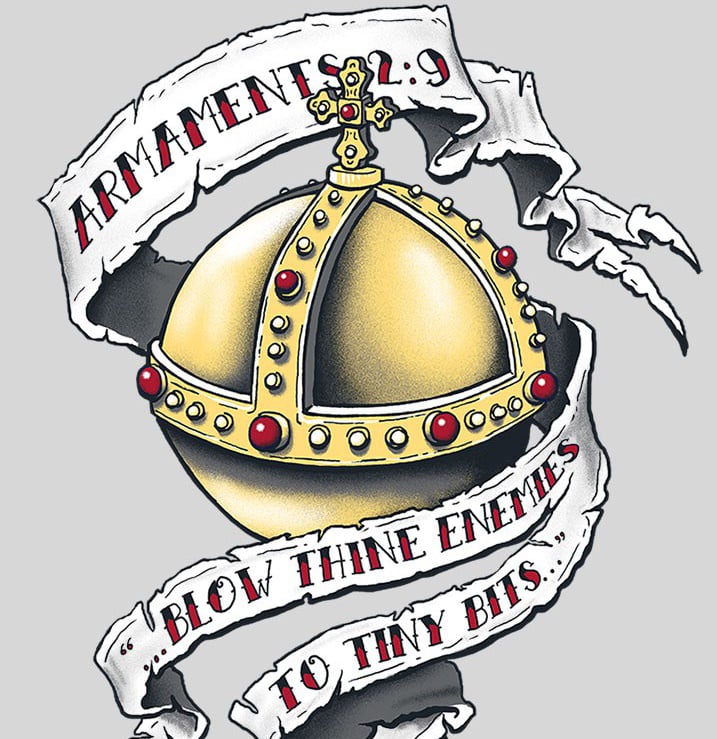What are some (non-English) idioms, and what do they mean (both literally and in context)? Odd ones, your favorite ones - any and all are welcome. :)
For example, in English I might call someone a “good egg,” meaning they’re a nice person. Or, if it’s raining heavily, I might say “it’s raining cats and dogs.”
In Swedish there is
“Now the boiled pork is fried”, meaning sometging has gone too far
" be on the cinnamon", to be drunk
“Put the legs on your back”, to run
“You are out biking”, you are missing the point
“Pay[back] for old cheese”, to get revenge
" bear-favour", is a favour that gives bad results
“Now you’ll see other buns”, things will get rough
" there are no children being made here", nothing is happening/its boring/lets go
“Satan and his aunt”, all kinds of people/everyone
“Good day, axe-handle”, something like saying “yeah, you dumbfuck” after getting a nonsense repley from someone
“In only the brass”, to be naked
“Show where the cupboard will stand”, to firmly make a decision
“You cupboard”, miss the point, being stupid
" shit in the blue cupboard", to make a mistake
Edit: forgot a good one:
“Get your thumb out of your ass”, to stop doing nothing and start doing something
I thought “be on the cinnamon” was going to be my favorite, but the list just kept getting better. I think you ended on the best.
björntjänst bear-favor: From a French fable (L’Ours et l’Amateur des jardins by Jean de La Fontaine) in which a tame bear wants to do his master a favor by hitting the fly who sat down on the master’s forehead, but hits the fly so hard that the master too is killed.
Interesting
Some Norwegian politicians have completely ruined this expression, and now use it to mean “a really big favor”.
It’s almost as annoying as when Americans say they “could care less” when they mean the opposite.
Bärendienst in German.
" there are no children being made here", nothing is happening/its boring/lets go
My sides went into orbit. How else would someone entertain themself, when this expression was coined? TV is a recent invention, after all…
Forgot: “Fastnat med skägget i brevlådan” Literal meaning being: “Stuck with your beard in the mailbox” which is basically saying you’ve fucked up and are getting caught in the act
Catalan:
Enfilar-se per les parets — To be climbing the walls — To be very angry and / or nervous.
Ficar-se de peus a la galleda — To get one’s feet in the bucket — To say or do something inconvenient and / or embarrassing.
N’hi ha per llogar-hi cadires — [Roughly translated] You could rent chairs for this — Refers to something very noteworthy or interesting.
(Anar a) canviar l’aigua de les olives — To (go) change the olives’ water — To (leave for a quick) piss.
Descobrir la sopa d’all — To discover garlic soup — To believe you’ve discovered or come up with something that’s commonly known (except, apparently, to you).
(Estar) tocat del bolet — (To be, or have been) touched/hit on the mushroom — (To be) insane.
Fer figa — To do or make fig (literally, the fruit, or figuratively, the vulva) — To become weaker, unable to perform one’s intended function.
Fer el préssec — To do or make the peach — To put yourself in a ridiculous situation.
Fer uns ulls com unes taronges — To open one’s eyes like oranges — To look very surprised or interested.
Fer pinya — To make (like a) pinecone — To work together for a common cause.
Partir peres — To split up pears — To break up a relationship (sentimental, professional, or otherwise).
Remenar les cireres — To mix up the cherries — To be the person who makes the decisions, to be in control (in a partnership, organisation…). Also, Tallar el bacallà — To cut up the cod. Also, Tenir la paella pel mànec — To hold the pan by the handle.
Somiar truites — To dream of omelettes — To believe things that will hardly be possible to be possible. And, by extension, Somiatruites — Omelette dreamer — Someone who regularly does that; an extremely unreasonable optimist.
Suar la cansalada — To sweat (the) bacon — To do very hard tiring work or exercise.
Aixecar la camisa — To lift (someone’s) shirt — To scam, misdirect, or lie (to someone).
Això són figues d’un altre paner — These are figs from a different container — This is a completely different matter (than what we were talking about).
Bon vent i barca nova! — Good wind and a new boat! — Farewell to someone or something you’d rather never see again.
(Això és) bufar i fer ampolles — (This is) (like) blowing and making bottles — Refers to something that’s very easy to do or achieve. Can be used literally or ironically.
Caure-hi de quatre potes / peus — To fall in with all four legs / feet — To fall for a scam or lie.
(Ser) cornut i pagar el beure — (To be a) cuckold (literally, to have horns) and pay for the drinks — To voluntarily sacrifice for others who take advantage of you.
(Donar) gat per llebre — (To give) a cat pretending it’s a hare — To lie, scam, or misdirect. To substitute a lower quality product for what you agreed to provide.
El més calent és a l’aigüera — The hottest stuff is in the sink — Work hasn’t even started yet on whatever endeavour we’re talking about.
En un tres i no res — In a three and nought — In a very short time.
La mare dels ous — The mother of the eggs — The main cause or reason (of/for something).
Lligar els gossos amb llonganisses — To tie up the dogs with sausages — To be wealthy.
Fer mans i mànigues — To do/make hands and sleeves — To put as much effort as possible into something.
Fer un riu — To make a river — To piss.
Veure el llautó — To notice the brass — To notice the concealed truth behind appearances. (Literally, it refers to noticing something is made of a poorer quality metal than it’s claimed to be.)
Tenir mà esquerra — To have (sic) left hand — To be good at diplomacy.
Un orgue de gats — An organ (musical instrument) made out of cats — A very noisy and chaotic room or place.
And there’s plenty more, but I’ve already spent more time than I could afford typing these.
Oh, but also, not exactly an idiom, maybe, but something I’ve always thought says a lot about Catalan worldview: the Catalan word for pigsty is cort. Which is exactly the same word (and with the same meaning) as the Catalan word for court. As in royal court.
Maybe that’s where Orwell got his idea for Napoleon & co to be pigs…?
Thank you for sharing! These are really interesting. I love that pigsty and royal court are the same word; very appropriate.
I love how much food is part of these!
“o que é um peido pra quem já está cagado?”
What’s a fart to someone who already shit himself?
If you’re already 30 minutes late, don’t speed recklessly to save 3 minutes.
Haha! The equivalent in Ireland (not sure if it’s used in other English speaking countries) is “may as well be hung for a sheep as a lamb”
Makes me think of " Why cry over spilled milk?" Which never made any sense to me lol
tnh I think the spilled milk saying is more about things that you can’t control / already happened.
and the Brazilian saying is more like “it’s ok to let a little more milk get spilled”, however I can’t think of a nice way of saying that.
edit: thinking more about that, maybe the milk saying can be used for this, but not necessarily
Yeah it didnt feel directly relatable but maybe adjacent to it
Icelandic is full of fun idioms:
“He’s totally outside driving” = he’s very incorrect about something, possibly crazy
“It’s hard to grab his horns” = He’s very headstrong and stubborn
“A wave rarely comes alone” = If something bad happens, usually a lot of bad things happen at once
“He hasn’t peed into the salty sea” = he’s young an inexperienced
“He has unclean flour in the corner of the bag” = he’s untrustworthy
“I totally come from the mountains” = I’m out of the loop, unaware of recent developments“He has unclean flour in the corner of the bag” = he’s untrustworthy
Danish has this also, just phrased like “He’s not got clean flour in the bag”
Maybe it’s from common heritage
Yeah probably, a surprising amount of Icelandic idioms have Danish/Norwegian counterparts
Swedish has it as well, so I think we can safely scratch it down to common heritage.
They do not fuck around when it comes to unclean flour
“I totally come from the mountains” = I’m out of the loop, unaware of recent developments
Similar to ‘Have you been living under a rock?’.
Turkish: “Niye böyle bakıyorsun? Karadeniz’deki gemilerin mi battı?”
-> “Why are you looking like that (Why such a face)? Did your ships sink in the black sea?”
It was already my favourite before 2022, but hell has it become ever more so then. Slava Ukraini!
Isn’t there also a saying like “fucked by a polar bear in the desert”, meaning being unlucky?
I believe you mean this one: https://eksisozluk.com/bahtsiz-bedeviyi-colde-kutup-ayisi-sikermis--165324
“Bahtsız bedeviyi, çölde kutup ayısı sikermiş.” == The misfortunate bedouin gets fucked by a polar bear in the desert.
However, I am not sure if this means fucked in a literal sense or rather “fucked up” :) probably the latter.
In Norwegian we say “helt sylta” (“completely pickled”) when we have a very stuffy nose. I tried using that idiom when calling out of work in the US once, and was informed that I had just told them I was too drunk to go to work!
I love the Norwegian “helt Texas” or “completely Texas”, which means something’s totally crazy. Probably a reference to Westerns.
A classic! I don’t know how I forgot to mention that one, I even coincidentally explained it to someone earlier today!
deleted by creator
Cubans have the antonym to that:
Aserlo como los blancos “Do it like white people”
Do it properly 😜
Almost forgot “jalla” or “jallamekk”, originally adopted by Norwegian military from a middle eastern word for “fast”, meaning a quick and dirty, but not particularly high quality, solution.
In Hebrew there is “para, para” which translates to “cow, cow” and it means “one at a time”
There is also “matzoz meh-ha-etzba” which translates to “sucked from the finger” and it means bullshit basically.
“Nishbar li ha-zain” which is “my penis broke” and it means “I’m done with this” in an angry and out of petience way.
ಕನ್ನಡ (Kannada): ಶಂಖದಿಂದ ಬಂದ್ರೇನೇ ತೀರ್ಥ - shankadinda bandrene teertha.
Literally: it’s holy water only if it comes from a conch.
Meaning: people are only going to take things seriously if a specific person says it.
Example scenario: you tell a friend that a cab to go somewhere costs X amount, but they don’t believe you and check with a different friend and then accept that it’s going to cost them X.
You’d then say this idiom to tease them since you gave them the same water (information) but it wasn’t holy water since you weren’t a conch (someone they trust/have faith in).
Spanish, but only from my region:
“You are worth dick”: You are worth nothing
“You are not worth dick”: You are worth nothing
So basically to be worth dick and not be worth dick is the same.
We also have some variation like
“You are [not] worth three trip strips of cock”: same meaning.
A bonus, not related to genitalia:
“Go get your hair brushed by a donkey”: Stop pestering / go fuck yourself.
Central America? Those kind of “click” for me if I retranslate them to Spanish with verga.
The “basic” insult also works in Portuguese with “caralho”:
- vale um caralho (worth a dick) = worth nothing
- não vale um caralho (not worth a dick) = worth nothing
“Go get your hair brushed by a donkey”: Stop pestering / go fuck yourself.
This sound hilarious. How is it phrased in the original? “Anda que un burro vos cepille el pelo” or something like that?
South america!
I didn’t know that also works in Portugese!
The original is: “Vaya a que lo peine un burro”. Bit of a hard translation and also is always formal (usted).
I think it’s hilarious how often different languages use genitalia in their idioms. These feel like they’d work really well, even in English.
My favorite in Macedonian: My dick hurts. Translation: I don’t give a fuck. Also, the opposite is true, like if someone says “My dick doesn’t hurt at all about so and so”, it also means the same thing: I don’t give a fuck. Go figure 🤷 😂.
This is hilarious 😂 Is it something those of us without dicks would also say? (In English, I might still tell someone to “suck my dick,” despite not having one.)
Yeah, girls say it around here too sometimes 😂, but some also tend to replace the dick oart with pussy, so girls would say “my pussy hurts” or “my pussy doesn’t hurt all” 😂.
Slovak: “Boha ti jebem” literally translates into “I fuck your god”. Unsurprisingly, it’s a curse you tell someone who pisses you off.
The Slovak Prime Minister also likes to say “Do psej matere”, which literally means “Into the dog’s mom”. The English equivalent would be along the lines of “For fuck’s sake”.
Picking a few amusing ones from Portuguese and Italian that I use often.
- [PT] um polaco de cada colônia (a Pole from each colony): assortment of random items or people that might look related but aren’t.
- [PT] o que o cu tem a ver com as calças? (what does the arse/arsehole have to do with the pants?): how is this shit even related [to something else implicit by context]?
- [PT] vir com o milho enquanto alguém já comeu a polenta (to bring the maize while someone already ate the polenta) - to think about something after someone else already handled it
- [IT] dire pane al pane e vino al vino (say “bread” for the bread and “wine” for the wine) - let’s speak clearly, OK? No [eu/dys]phemism, let’s call things by what they are.
- [IT] scoprire l’acqua calda (to discover hot water) - it’s a bit like English “to reinvent the wheel”: everybody already knew it, but you just realised it.
- [IT] l’ospite è come il pesce / [PT] a visita é como o peixe (guest is like fish) - don’t overdo your stay; guests and fish, both stink on the third day.
- [IT] non avere peli sulla lingua / [PT] não ter pelos na língua (to not have hair on the tongue) - someone who speaks openly, not holding back
There’s also a funny Latin insult that I tend to jokingly use translated fairly often, “funge putride” (you rotten mushroom). I like it because it’s really light, not something to really insult someone.
There’s a Dutch saying “gasten en vis blijven drie dagen vers”.
Guests and fish stay fresh for the days. Very similar meaning
“Masamang damo”, or weed, as in unwanted grasses in your garden, not the marijuana. You call that to someone undeniably evil (or to just someone whom you hate) but just won’t go away or die, especially old corrupt politicians.
“Huwag kang pilosopo” which literally means “don’t philosophise” but its casual meaning is “don’t be a smart ass”. However, knowing people in my country especially after electing the son of a former dictator thanks to “Facebook researches”, this expression implies to someone not to think critically.
Irish: Ar muidne muiche.
Literally “on the pigs back” and means “doing great” for example in response to “how are you?”
In Piedmontese (northern Italian dialect):
“To be mounted over squared ball bearing” = to be really strange, not as other people
“Horse brand” = a product of an unknown low quality brand
“To beat the goat” = throw a tantrum
Also from Piemonte I’ve never heard the horse brand one but “three hens brand” was used regularly when I was a kid.
My favourite though is “Coma na barca ant el bòsch”, like a boat in the woods
Italian here (Veneto) How do you say it in your dialect? The ball bearing one. I really can’t translate it myself into something that could make sense to me.
“esse montà 'n sle bije quadre”, and the literal translation in italian is “essere montato sulle biglie (cuscinetti a sfera) quadre”
Sorry for the necro, but i need to contribute:
In Southern Sardinian, su schiron’e linna in sa domu 'e ferreri(the wooden skewer in the smith’s house): something completely out of place.








